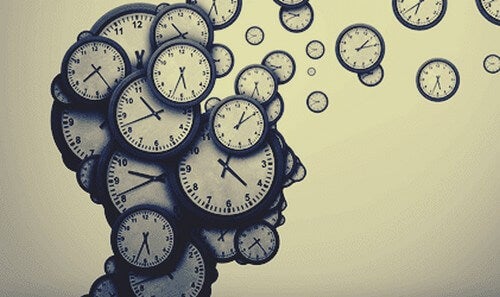We all make predictions almost at all times. Do we know when the best part of the songs we listen to begins, we also tend to accelerate our steps when we feel that the light will turn red, we predict the future in a simple and instrumental way thanks to two fabulous and precise clocks?Brain.
Albert Einstein said that time is little more than an illusion, however, if there is an organ that seems to understand this dimension almost objectively is the brain itself, thanks to it we were able to predict events that could occur at a specific time. time and we react to put them in our favor.
- Something like this allows us.
- Among other things.
- To turn the steering wheel of the car at the last second to avoid an accident.
- It also helps us to choose the words when talking to someone.
- Which allows us to understand what phrase can help us.
So the experts are talking more? Just beforehand. Because what we do many times is adapt to these events in our environment to be part of it, eliminating risks and always taking advantage. Let’s look at more information below.
“Don’t worry if the world will end today. Is it Australia tomorrow?” -Charles M. Schulz-
Humans build clocks with one goal: to help accurately measure the passage of time. As such, this dimension is always linear and follows the same pattern. However, for our brains, the idea of time is a little more complex. Happy and have fun, time passes incredibly fast. Other times, it seems to stop, especially when we are experiencing traumatic events.
Similarly, neurodegenerative diseases such as Alzheimer’s disease and Parkinson’s disease involve situations in which the notion of time and rhythm is altered, so something happens in us that makes us live it in different ways. clocks. ” Brain.
Our brain has a place where the mechanism of understanding time resides. In 2005 we discovered the so-called grid cells, which make up our GPS system (which tells us where we are and allows us to orient ourselves). Recently, a study from the University of Berkeley explained where it is and how this area of the brain works that articulates and controls the meaning of time.
These brain clocks, each located in a region, work in a coordinated way, through them we can, for example, react by predicting strategies when we play football, chess or when talking to someone. When predicting an event, they also use experience and memory to learn how to act.
The authors of this study, such as Dr. Assaf Breska, point to something as interesting as it is hopeful: it is known that patients with cerebellar or Parkinson’s degeneration have difficulty responding to the stimuli in their environment Do patients with cerebellar degeneration not respond?Non-rhythmic and Parkinson’s patients have rhythm-related deficits and all based on sequences (music, movement, etc. ).
In both cases there is a very clear distortion of the time factor (uncoordination) that completely affects the daily life of patients, so everyone has a problem with one of these brain clocks, in patients with Parkinson’s disease there is a central gray nucleus clock deficit, and in patients with cerebellar degeneration, in the important area that anticipates the future.
The good news is this: it has been discovered that with training, the function of a “clock” can be provided with each other. Therapy would be based on several computer games and also deep brain stimulation, something that would allow them, for example, to move and react more freely, better adapting to the environment.
However, all of this is still in the experimental stage and there are no defined treatments yet.
We will monitor any progress.

